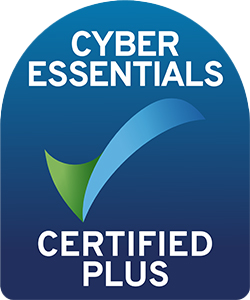Cover letters have been a part of the job application process for as long as we all can remember, but opinions about their value have changed over time. In the UK today, some employers still see them as essential, while others don’t read them at all. So, how important is a cover letter in 2025?
This article takes a closer look at the current role of cover letters, how hiring managers view them nowadays and whether it’s worth your time writing one. We’ll explore the arguments for and against, how cover letters can still make a difference in certain industries, and when they might just be a waste of effort.
By the end, you’ll have a clearer picture of when a cover letter matters, and how to write one that gets noticed.
What Employers in the UK are Saying Regarding Cover Letters
In recent years, UK employers have become more divided on the usefulness or importance of cover letters. Some still see them as a chance to learn about a candidate’s personality and motivations. Others admit they go straight to the CV and never read the cover letter. Leaving many people wondering just how important is a cover letter these days?
This divide in opinion means that job seekers need to understand the preferences of the company they’re applying to. That isn’t always easy, especially when many job adverts are vague about what’s expected.
Large employers, especially those using automated systems, are often more focused on CVs and online application forms. Many of these systems scan for keywords and don’t review cover letters at all. On the other hand, smaller companies or those in more traditional sectors, like law or publishing, are more likely to read a cover letter closely. In these cases, it can make a strong impression and even tip the scales in your favour.
Recent research found that 56% of UK employers still want to see a cover letter. That number drops among tech and creative companies, where portfolios and practical skills carry more weight. This divide is important to keep in mind. If a company places value on communication and written expression, the cover letter might still hold real power. Knowing this can help you decide when to invest time in writing one and when to focus elsewhere.
How Important is a Cover Letter and Can They Help You Stand Out?
When done well, a cover letter can be a useful tool. It gives you the chance to explain things that don’t fit neatly on a CV. Maybe you’re changing careers or coming back after a break. Perhaps your degree doesn’t match the job but your experience does. A cover letter lets you talk directly to the hiring manager and frame your story in your own words.
In competitive roles, especially those with hundreds of applicants, your cover letter can help you stick in someone’s memory. Recruiters often say they remember people who show personality, passion and a clear reason for applying. A cover letter is one of the few chances you get to do that. Without it, you’re relying solely on bullet points and job titles, which can all start to look the same.
It can also be a space to show that you’ve done your research. Mentioning something specific about the company or role signals that you care enough to make the effort. Hiring managers often pick up on this. Generic applications are easy to spot and just as easy to ignore. A good cover letter can show that you’re not just applying at random, but have thought about what makes the role right for you.
Take a look at our guide on how to write a CV that stands out from the crowd!
Situations Where a Cover Letter is More Important
There are some roles and industries where a cover letter still carries a lot of weight. In roles where writing and communication are key parts of the job, the cover letter is often used to assess those skills. When the ability to express yourself clearly and concisely is part of the job itself. The cover letter becomes a mini work sample.
If you’re applying through a recruiter, you might not always need a cover letter. Many recruiters summarise your profile themselves. Still, if the recruiter asks for one, it’s likely the employer wants to see it. Government and public sector jobs in the UK also tend to include more structured application processes, but many still ask for a supporting statement that functions in a similar way to a cover letter.
For graduates and early-career professionals, the cover letter can be even more important. Without years of experience, it’s a space to explain your interest in the role and show your potential. Employers often want to see motivation and willingness to learn. The cover letter is where you can make that case, especially if your CV alone doesn’t make it obvious.
Why Some Employers Skip Cover Letters
While some hiring managers value cover letters, others say they rarely read them. There are a few reasons for this shift. First, time pressure. Many hiring teams deal with high volumes of applications. If they can get what they need from the CV, they often move on without reading the rest.
Automation is another factor. In larger companies, applications often go through applicant tracking systems (ATS) that scan CVs for keywords before a human even sees them. These systems don’t usually scan cover letters, which means even a strong one might never be read unless your CV gets flagged.
There’s also a growing view that most cover letters sound the same. One reason for this could be due to the incorrect use of AI. If a hiring manager has read twenty letters that all repeat similar phrases, they may stop looking for value in them. That’s why tailoring each letter is so important. A personal, relevant cover letter might be the only one they read that day that feels genuine. If you do choose to use AI to help you then make sure to read this guide.
Are Cover Letters Going Out of Style?
In some ways, yes. The cover letter is not as important as it once was. As job platforms and application systems become more structured, the need for a separate cover letter is fading. Some employers now rely more on structured questions or application forms. Others place more value on online profiles like LinkedIn.
That said, many professionals still use cover letters to show they take the application seriously. A thoughtful, well written letter might not be essential, but it often works in your favour. Even if it doesn’t get read every time, it shows attention to detail and effort.

Should You Write a Cover Letter Anyway?
In most cases, yes. Unless the job ad says not to, writing a cover letter is still a good idea. It’s better to have it and not need it than the other way around. Skipping it could send the wrong message, especially in fields where they’re still valued.
Writing a good one doesn’t have to take hours. Once you’ve got a solid structure, you can tweak it for each role. Keep it brief, clear, and tailored. Avoid copying generic templates from the internet. Hiring managers can spot them a mile off.
A good cover letter complements your CV. It doesn’t repeat it. Instead, it gives more context. You can explain what draws you to the company and why the role makes sense for your goals.
What Makes a Great Cover Letter in 2025
A great cover letter in 2025 is short, focused and personal. It avoids filler and goes straight to the point. Most hiring managers say they prefer letters that are no longer than one page. Clear language matters more than fancy phrasing. Aim to sound like yourself, not a robot.
Try to include a specific reason for applying to the company. Show that you understand what they do and how the role fits in. Point out one or two ways your skills match what they’re looking for. Avoid just listing your achievements. Instead, explain why those achievements matter in the context of the job.
Tone is important. A cover letter should feel human and natural. That means being professional without sounding stiff. Politeness, curiosity, and clarity all go a long way. It helps to imagine you’re writing to a person, not just submitting a form.
So, How Important Is a Cover Letter? And How The Electronics Group Recruitment Can Help
So, how important is a cover letter? As we have covered, it depends on the job, the company, and how well it’s written. In the UK job market today, cover letters are not always expected, but they are still often noticed when they’re done well.
However, writing a great cover letter is only one part of landing the right role. That’s where The Electronics Group Recruitment comes in. When you apply for a role through us, we’ll help you get your cover letter and CV ready. We know which roles require a cover letter and what kind of detail hiring managers expect to see.
We’ll also make sure you’re not wasting time on jobs that aren’t the right fit for you. Our recruitment team specialises in the electronics industry, so we know what recruiters are looking for.
If you’re ready to take the next step in your electronics career or even if you’re just starting out, get in touch with our team. We’re always happy to talk through your experience, match you with the right vacancies and help you stand out for the right reasons.


